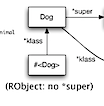 AppSumo is an intriguing “bad ass developer bundle” that brings together $1543 of credit for ten different Web app development related resources (most are Ruby focused or have Ruby APIs) for a mere $47 purchase.
AppSumo is an intriguing “bad ass developer bundle” that brings together $1543 of credit for ten different Web app development related resources (most are Ruby focused or have Ruby APIs) for a mere $47 purchase.
The services include:
- Twilio – an API driven telephony service (I use this — it’s great)
- Heroku – the Ruby webapp hosting environment
- Hoptoad – the errors notification service
- New Relic – the performance monitoring and application management service
- As well as Recurly, SendGrid, MongoHQ, SauceLabs, Infochimps and Linode.
Sadly I’m already signed up with most of these services and most of the credits are for new or upgraded accounts only, but if you want to give any of the above services a try or want to build a new app that relies on them, this looks like a steal. Read More







 Heroku, a popular Ruby webapp hosting platform that’s picked up $13m in funding, has today unveiled their new
Heroku, a popular Ruby webapp hosting platform that’s picked up $13m in funding, has today unveiled their new  A few days ago,
A few days ago,  Tom Preston-Werner has pushed out version 0.3.0 of
Tom Preston-Werner has pushed out version 0.3.0 of 
 Back in August,
Back in August, 
 At its “Back To Mac” presentation yesterday, Apple unveiled the
At its “Back To Mac” presentation yesterday, Apple unveiled the 



 9 months in the making
9 months in the making  Just a month ago, David Heinemeier Hansson
Just a month ago, David Heinemeier Hansson 